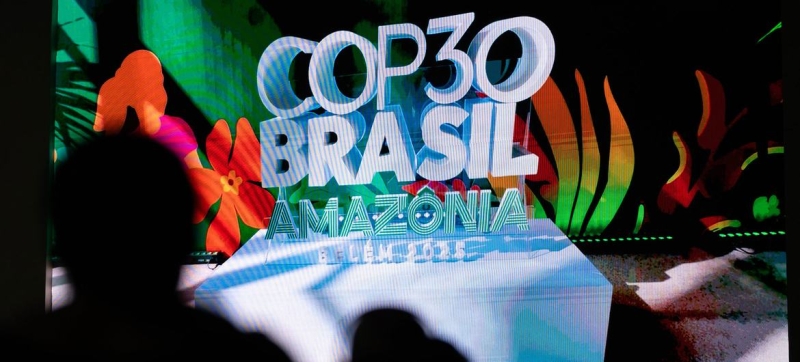
The UN Climate Conference is taking place in Belem, Brazil. Historic COP30 declaration: combating climate disinformation takes center stage Climate and Environment
Delegates gathered in the Brazilian city of Belém for the 30th UN Climate Change Conference (COP30) want to save the planet from catastrophic rising temperatures. But their efforts are threatened by misinformation that could undermine the fight against global warming.
On Wednesday, a group of 12 countries signed the Climate Change Assurance Declaration. The document provides specific measures to combat false content on the Internet and stop targeted attacks on journalists, scientists and researchers working on climate and environmental issues. Brazil, Canada, Chile, Denmark, Finland, France, Germany, Spain, Sweden, Uruguay, the Netherlands and Belgium joined the declaration.
Read also:
What’s important to know about climate change: WMO expert on alarming trends, flows of misinformation and the need for joint action
This was announced as part of the Global Security Initiative reliability of climate information. The initiative, launched in June this year, is being implemented government of Brazil, the UN Department of Global Communications and UNESCO.
Disinformation can derail negotiations
COP 30 Special Envoy for Trustworthiness Frederico Assis told UN News Service that “disinformation… fuels political extremism and puts lives at risk.” He warned of the real risk of interference in the climate negotiations process.
“It is widely recognized that disinformation can jeopardize any part of the process within the COP—whether diplomatic negotiations, agenda implementation, mobilization [of the international community] or the organization of summits. All our efforts will be at risk if we fail to properly counter disinformation, which is rooted in denial of facts,” Assis noted.
He expressed concern about algorithms that amplify “conspiratorial and manipulative content” and use “sophisticated tactics to spread false messages.” information
In an interview with the UN News Service, UNESCO Director for Digital Inclusion, Policy and Transformation, Guilherme Canela, emphasized that the topic of information reliability is included in the official agenda of the COP for the first time.
He noted that the global initiative will help to better understand the mechanisms of dissemination misinformation.
“We still know very little about what is behind this process. For example, who funds these types of publications? Why do they spread faster than other content? How does this happen? Without understanding these mechanisms, it is impossible to develop effective strategies to combat this phenomenon,” Canela said. “ – he added.
Canela noted that “it is extremely encouraging to see this topic receive such strong support at COP 30.”
The initiative’s Global Climate Assurance Facility has already received nearly 447 applications. from 100 countries, two-thirds of them coming from developing countries.
With initial funding of $1 million from Brazil, the foundation began supporting its first series of projects.
Changing forms of disinformation
Speaking to the UN news service, digital influencer Maria Clara Morais said combating climate disinformation is “not impossible, but extremely difficult.”
Co-founder of the platform Marias Verdes, which has more than 500 thousand followers on TikTok, noted that disinformation is carefully orchestrated and “supported by powerful forces, especially oil and gas industry.”
Narratives discrediting climate action “change face” over time, she said.
“There are many forms of disinformation. One of the most dangerous is the assertion that it is too late, that nothing can be done, or that events like COP30 do not change anything. This is also misinformation,” Morais said.
“We must constantly reaffirm the value of multilateral cooperation and the importance of platforms like this,” she emphasized.
Hope for the young generation
Morais said that through her work on sustainability and scientific data, she has noticed that awareness of the climate threat in society is growing.
She emphasized that the younger generation is becoming a “source of hope and optimism.”
Morais noted the role of each person in creating “micro-revolutions” – daily actions and decisions that support climate initiatives and contribute to large-scale systemic transformation.
